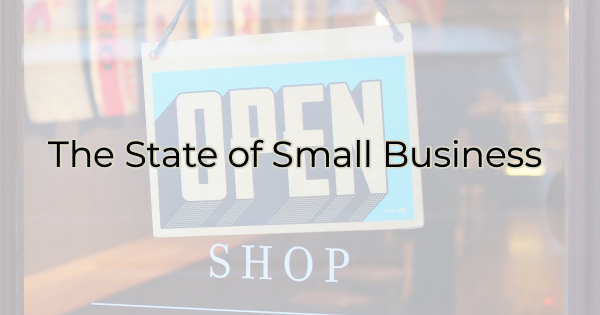
The Alameda Chamber & Economic Alliance is the Voice of Business and as the Voice of Business, there’s something we feel the need to express to everyone in the community. Inflation is being felt everywhere, from Fortune 500 companies to solopreneurs just starting out.
However, the difference between large-scale companies and smaller ones are their reserves. According to JP Morgan Chase, the average small business runs with only 27 days of operating expenses in reserves. Increases in utilities, goods and services, real estate, and gas costs; supply chain issues impacting delivery; and employee shortages have taken a toll on businesses, especially our smaller ones.
In this challenging time, while you are dealing with your own concerns over stretching your paycheck, we want to share some things you might not realize.
Small Business Pricing Stats (April 2022, Goldman Sachs)
- 91% of small businesses said they have been negatively impacted by rising costs, supply chain, and workforce challenges, up from 86% in January 2022
- 73% said increasing energy costs are negatively impacting their bottom lines
- 56% believe the issues have gotten worse since the start of 2022
- 74% are currently hiring, 90% of those are finding it difficult to fill the positions
- 67% have increased wages to keep/attract employees
- 42% of small businesses have lost employees to larger companies
- 75% are seeing a rise in their operating costs, yet only 40% have raised prices
Let’s repeat that last one. Three quarters of small businesses are seeing a rise in their costs but less than half have raised prices so far. Costs are going up. These businesses have held out as long as they could. Soon those that haven’t already will raise their prices. It’s inevitable.
Before you react to this, please consider…
Responding to Increased Prices
Businesses need our support, and they need our patience. This is a last resort for many small businesses because they are very close to their customers. They don’t want to pass on their costs. They know customers have their own pricing concerns and their paychecks are not going nearly as far as they used to.
You may see closures on days the businesses used to be open or experience limited hours to help bridge staff shortages. Be understanding of this. By limiting their hours, they are trying to remain in business and cover the employee shortage they’re facing.
Businesses may reduce the services they offer or the secondary costs. Bars, for instance, may cut back on bands to save money. We ask that you table your complaints. They’re doing the best they can right now to make enough profit and cut costs to stay in business.
According to the National Federation of Independent Business, 31% of small businesses are taking on debt to help keep costs low. So, they need your continued support and understanding.
This may seem like a bleak picture for small businesses, but we have had some wonderful success stories over the past year as well. There are new businesses growing. People are starting their own enterprises even through these tough times. We want to support them as well.
Business owners are resilient, hardworking, problem-solvers. People who go to work for themselves believe in the service or product they provide. As the saying goes entrepreneurs would “rather work 80 hours for themselves, than 40 for someone else.” We have faith in business owners and we’re doing our best to help by giving them the resources to work through these extraordinary challenges, but we need your help.
Bottom Line
Small businesses need you to:
- Show up. Keep patronizing them.
- Put up. Costs are increasing for everyone. They are not here to gouge you.
- Support them. If not through purchases than through reviews, word-of-mouth, or referring someone looking for work.
- Pass the message along. Remind others what businesses are going through. It’s stressful wondering how you’ll make payroll, pay your suppliers or your landlord.
We’ll get through this together, but it won’t happen by making small business owners and employees feel dumb or guilty for trying to do what’s necessary to stay open.
